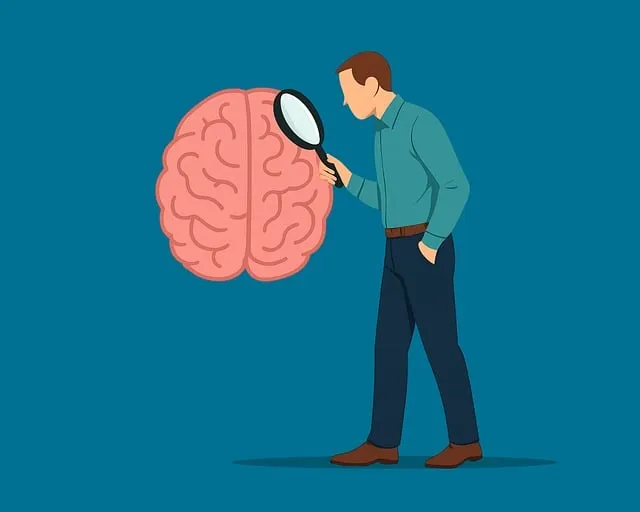Mood regulation is key to mental wellness, and Kaiser's inpatient services provide professional guidance through techniques like anxiety relief podcasts and social skills training. Their holistic approach focuses on stress management, anxiety relief, and trauma support, using evidence-based therapies and individualized plans. By integrating mindfulness, exercise, sleep, and healthy eating with therapy options like CBT and interpersonal psychotherapy, Kaiser enables individuals to develop emotional resilience and lead healthier lives. Superior inpatient mental health services from Kaiser, combined with community outreach and education, promote overall well-being in today's stressful world.
“Mood regulation strategies are essential tools for managing emotional well-being. In today’s fast-paced world, understanding how to navigate and stabilize moods is crucial. This article guides you through a comprehensive journey, starting with the basics of mood regulation and delving into advanced techniques. We explore Kaiser’s renowned inpatient mental health programs, offering a deeper look at their effectiveness. From daily life strategies to therapy options and mindfulness practices, discover how to take control and achieve superior emotional balance.”
- Understanding Mood Regulation: Unraveling the Basics
- Kaiser's Inpatient Mental Health Programs: A Comprehensive Overview
- Effective Strategies for Daily Life: Taking Control of Your Mood
- The Role of Therapy and Support Groups in Mood Management
- Advanced Techniques: Exploring Mindfulness, Meditation, and More
Understanding Mood Regulation: Unraveling the Basics

Understanding Mood Regulation: Unraveling the Basics
Mood regulation is a crucial aspect of mental wellness, enabling individuals to navigate life’s ups and downs with resilience. It involves managing and stabilizing emotions, ensuring they are appropriate for the given situation. Superior does Kaiser have inpatient mental health services? Indeed, many people turn to professional support for guidance in this area. Anxiety Relief techniques, often explored through Mental Wellness Podcast Series Production, offer valuable insights into coping strategies. These methods can help individuals disengage from persistent negative thoughts and promote emotional balance.
Social Skills Training is another effective approach, teaching people how to interact with others in healthy, positive ways. By mastering these skills, one can enhance their overall mental wellness and foster supportive relationships, which are instrumental in mood regulation. These strategies collectively empower individuals to take charge of their emotional well-being, ensuring they thrive even amidst challenging circumstances.
Kaiser's Inpatient Mental Health Programs: A Comprehensive Overview

Kaiser’s inpatient mental health programs stand out for their comprehensive approach and superior care. These programs offer a safe and structured environment where individuals can focus on their mental well-being, with services tailored to address various psychiatric conditions. The focus is not just on treating symptoms but also on empowering patients with coping skills development to manage stress, anxiety relief, and trauma support services.
What sets Kaiser apart is its holistic perspective, integrating medical, psychological, and social interventions. Patients benefit from expert clinical teams, evidence-based therapies, and individualized treatment plans. Whether dealing with depression, bipolar disorder, or post-traumatic stress, Kaiser’s inpatient programs prioritize intensive care and aftercare coordination to ensure a seamless transition back to daily life.
Effective Strategies for Daily Life: Taking Control of Your Mood

In our fast-paced world, maintaining emotional balance can be a challenge. However, incorporating effective mood regulation strategies into daily life offers a powerful way to gain control over one’s mental well-being. The Kaiser network, renowned for its superior inpatient mental health services, also provides valuable insights and resources for community outreach program implementation, emphasizing the importance of resilience building and empathy within these initiatives.
By fostering a routine that promotes mindfulness, exercise, adequate sleep, and healthy eating habits, individuals can significantly enhance their ability to manage stress and regulate moods. Moreover, engaging in activities that cultivate social connections, such as joining support groups or participating in community outreach programs, has been shown to boost resilience and empathy-building strategies, ultimately contributing to a more stable and positive emotional state.
The Role of Therapy and Support Groups in Mood Management

Therapy plays a pivotal role in mood regulation, offering individuals specialized support and guidance to manage their mental health effectively. Kaiser, known for its superior inpatient mental health services, provides comprehensive therapy options tailored to diverse needs. From cognitive-behavioral therapy (CBT) that helps identify and change negative thought patterns, to interpersonal psychotherapy focusing on improving relationships, these therapeutic approaches empower patients with valuable tools to navigate emotional challenges.
Support groups complement individual therapy, fostering a sense of community and shared understanding. These groups facilitate open discussions, build empathy among members, and offer confidence-boosting opportunities. Mental health education programs designed within these support networks equip individuals with strategies to manage stress, recognize early warning signs of mood disorders, and promote overall well-being. By combining therapy, support groups, and mental health education, Kaiser offers a holistic approach to mood management, empowering individuals to lead healthier, happier lives.
Advanced Techniques: Exploring Mindfulness, Meditation, and More

In today’s fast-paced world, maintaining mental wellness is a constant challenge. Advanced techniques like mindfulness and meditation offer powerful tools to regulate mood and promote better mental health. These practices have gained significant traction, with even the Kaiser network recognizing their value by providing superior inpatient mental health services. By integrating these ancient yet modern methods into one’s daily routine, individuals can experience profound shifts in their emotional state.
Developing a robust self-care routine is pivotal for enhancing mental wellness. Mindfulness meditation, for instance, encourages present-moment awareness, helping to quiet the mind and reduce stress. Public awareness campaigns play a crucial role in disseminating knowledge about these practices, fostering a culture of mental health openness and support. Through consistent practice, one can harness the potential of mindfulness and meditation, ultimately contributing to a more balanced and resilient state of being.
In summary, understanding mood regulation is paramount for enhancing well-being. Kaiser’s comprehensive inpatient mental health programs stand out as a superior resource, offering specialized care for diverse needs. Daily practice of effective strategies, combined with therapeutic support from groups or individual therapy, can significantly manage and improve moods. Advanced techniques like mindfulness and meditation further enrich this process. By integrating these tools, individuals can take control of their emotional health and foster a more balanced, fulfilling life.






